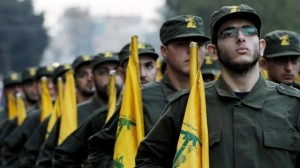[caption id="attachment_26269" align="alignright" width="210"] Hezbollah fighters hold party flags during a parade in a southern suburb of Beirut, Lebanon.[/caption]
Hezbollah fighters hold party flags during a parade in a southern suburb of Beirut, Lebanon.[/caption]
TEHRAN (Tasnim) – A Middle East expert praised the Lebanese Hezbollah Resistance Movement for its victory in the 33-day summer war of 2006, saying the movement witnessed a great boost in its popularity and position after the military confrontation.
“After the 33-day war, Lebanese Hezbollah’s standing in the international arena was elevated and its popularity was doubled,” Hassan Haanizade told Tasnim today.
The war also called the 2006 Israel-Hezbollah War and known in Lebanon as the July War was a 33-day military conflict in Lebanon, northern Israel and the Golan Heights.
The conflict started in July 2006, and continued until a United Nations-brokered ceasefire went into effect in the morning of 14 August 2006, though it formally ended on September 8, 2006, when Israel lifted its naval blockade of Lebanon.
The Iranian analyst’s remarks came a few weeks after the 28 members of the European Union agreed on July 22 to blacklist Hezbollah’s military wing.
On the recent EU decision, Haanizade said the US and the EU orchestrated the anti-Hezbollah scenario to take revenge on the movement.
The blacklisting would mean imposing visa bans on individuals and asset freezes on organizations associated with the movement.
Many top Lebanese officials immediately expressed deep concern over the decision, which some said would damage Lebanon’s international relations and worsen internal tensions.
By Tasnim News
The Iran Project is not responsible for the content of quoted articles.

 QR code
QR code